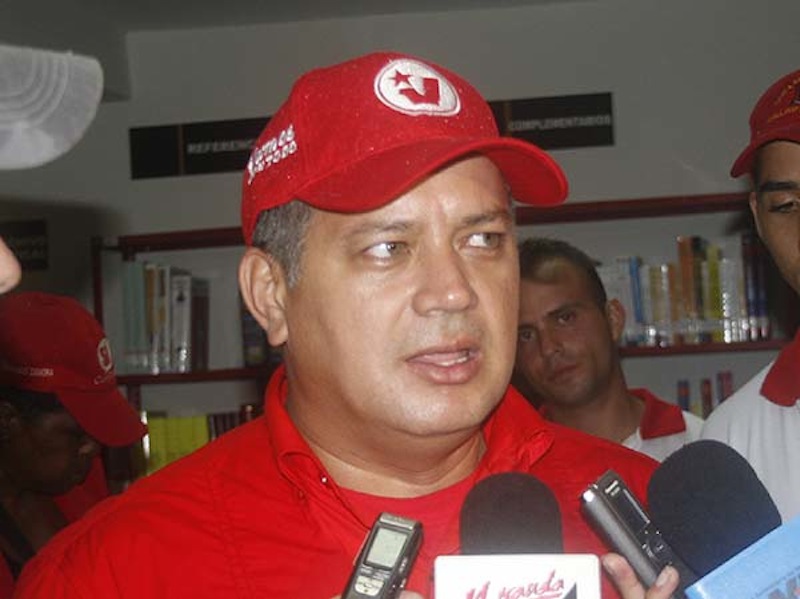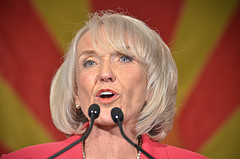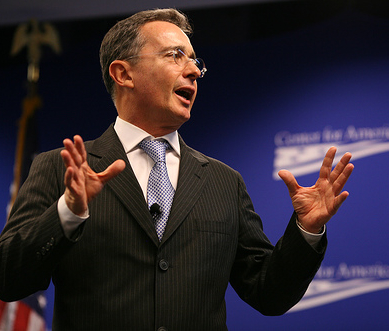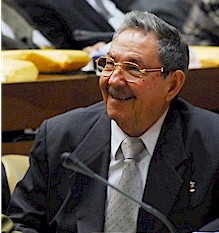
Dispatches, United States
Latin America Experts Assess Obama Administration’s First Year
February 24, 2010 By Mike Samras
WASHINGTON — Experts on Latin America met in Washington Monday to discuss the Obama administration’s record in the region, giving the president mixed reviews after his first year in office. Focusing on democratization, migration and drug issues in Latin America, some participants saw a break with the policies of former President George W. Bush, while others regretted the lack of change between the two administrations.
Arturo Valenzuela, President Obama’s Assistant Secretary of State for Western Hemisphere Affairs gave the keynote address highlighting the administration’s actions in the region. He focused on the American response to the earthquake in Port-au-Prince, Haiti and stressed that U.S.-Latin relations must “based on mutual respect, but also mutual responsibility.”
Valenzuela was asked about the official U.S. reaction to the coup d’état last year in Honduras. While not serving the administration at the time, he defended its actions citing the democratic election process that had begun before the coup as essential to the situation’s eventual resolution.
When asked about the criticism of the American government’s perceived neglect of the region, Valenzuela said, “it’s a good thing [we]’re not focused on Latin America,” explaining that “the challenges faced today are not over open conflict or economic meltdown,” as they are in other regions of the world.
“The region can no longer be taken for granted,” said former Peruvian President Alejandro Toledo.
“I know [President Obama] is very occupied with Iraq, Afghanistan, China, Russia, but take a quick look to the south,” Toledo said, adding that without more U.S. involvement, other powers such as China and Iran will begin to fill the void left by U.S. inaction.
Toledo also emphasized the importance of bolstering democratic institutions in Latin America in response to many threats including the Honduran coup.
Moisés Naím, editor-in-chief of Foreign Policy magazine, was hesitant to pass judgment on this issue early in Obama’s first term, but said that his grading of the administration, “is not an A, but it’s not a C.”
Latin America was naturally not the president’s main focus “because of all the other crises he had to deal with and because his team’s not yet in place,” Naím said.
“I give the Obama administration high marks,” Cynthia Arnson, director of the Latin America Program at the Woodrow Wilson International Center for Scholars. “Economic and development assistance is about five time higher than is has been,” adding that the numbers excluded the military expenditures on Mexico and Colombia.
One common criticism of the Obama administration was the dispute over U.S. military forces using Colombian Air Force bases to conduct anti-narcotic operations. The exposure of the covert program led to heightened tensions between Colombia and Venezuela that have yet to be resolved.
Arnson characterized the handling of the bilateral military agreement as, “one of the greatest setbacks to the Obama administration in the region.”
Arnson also gave Obama “very mixed to low marks,” for Plan Colombia’s failure of reducing coca cultivation and the lack of investment into job creation in Latin America to counter the drug trade.
Marie Price, Professor of Geography and International Affairs at the George Washington University did not hold out much hope for the Obama administration’s immigration reform saying, “the economic crisis put immigration reform on hold and I think it will remain on hold for years.”
Price did feel that the issue of immigration will eventually be resolved because of the increasing connectedness of Latin economies with the U.S. “If you have free movement of goods and capital, you will of course have free movement of peoples,” she said.
Lino Gutierrez, former U.S. Ambassador to Argentina and Nicaragua and professor of International Affairs at George Washington University, claimed that overall, the promises made by President Obama mirrored those of his predecessor.
Sarah Stephens, Director of the Center for Democracy in the Americas, agreed with Gutierrez noting that on critical issues, the Obama administration has continued the policies of President Bush.
“[Latin America] is no longer our backyard and never again will be,” Stephens claimed.
Image: NasaHQ @ Flickr.
About Mike Samras
Mike earned degrees in political science and journalism from the University of Pittsburgh. After graduating from college in 2006, Mike joined the Peace Corp and spent two and half years living and working in El Salvador. He is currently pursuing a master's degree in political management at George Washington University.







2 Comments
[…] Just published at the Dispatch: Latin America Experts Assess President Obama’s First Year. […]
[…] Obama’s First Year […]
Comments are closed.